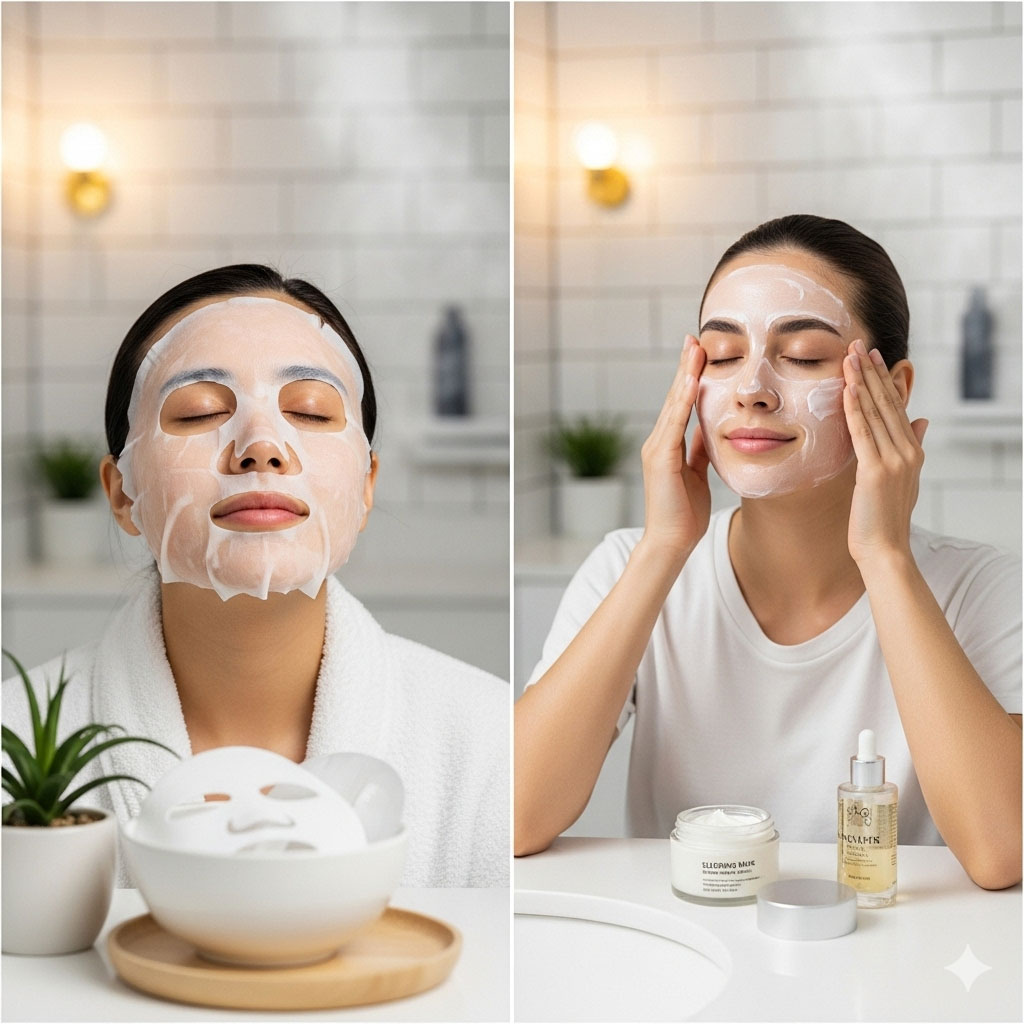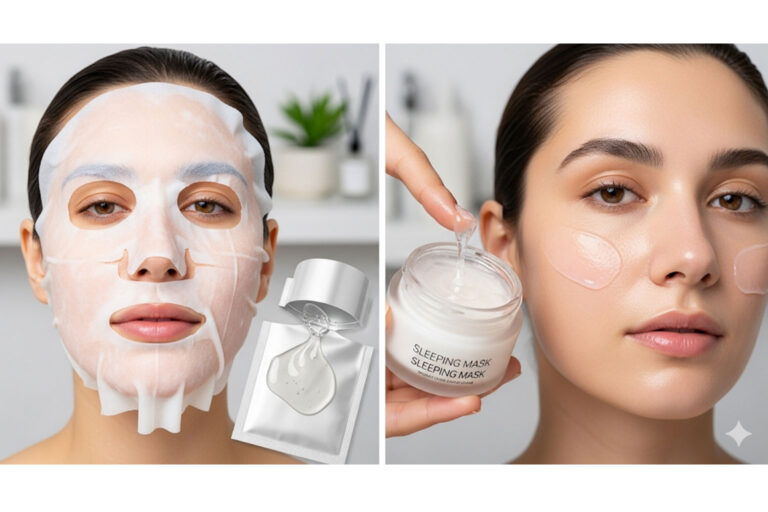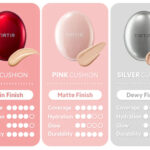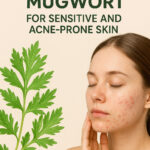Pixie Forever – In the skincare world, two products often spark discussion: Sheet Mask vs Sleeping Mask. Both are designed to deliver extra hydration, nourishment, and a soothing effect for the skin. However, many people still wonder which one works more effectively to achieve the best results.
What Is a Sheet Mask?
A sheet mask is a thin facial sheet usually made from natural fibers, cotton, or hydrogel. It comes pre-soaked with essence or serum rich in active ingredients such as hyaluronic acid, vitamin C, niacinamide, and plant extracts.
It’s very simple to use. After cleansing, place the mask on your face and leave it for about 15–20 minutes. The sheet acts as a barrier to lock in the essence, allowing the ingredients to penetrate better. As a result, your skin feels instantly refreshed, hydrated, and radiant.

What Is a Sleeping Mask?
Unlike sheet masks, a sleeping mask is a cream or gel-type mask applied at the final step of your night skincare routine. As its name suggests, it is designed to be worn overnight, delivering deep hydration and nutrients while your skin undergoes its natural regeneration process.
Sleeping masks usually contain more potent ingredients compared to regular moisturizers, such as low-molecular hyaluronic acid, ceramides, peptides, and even retinol. Because they work overnight, sleeping masks can penetrate deeper into the skin, leaving it plump, soft, and revitalized in the morning.
Key Differences Between Sheet Masks and Sleeping Masks
- Duration of Use
- Sheet mask: applied for 15–20 minutes.
- Sleeping mask: applied overnight while sleeping.
- Main Function
- Sheet mask: provides instant hydration and refreshment.
- Sleeping mask: delivers intensive care and long-lasting nourishment.
- When to Use
- Sheet mask: anytime, especially before makeup or when your skin needs quick hydration.
- Sleeping mask: at night as the last step of skincare.
- Results
- Sheet mask: fast effect, great for an instant glow.
- Sleeping mask: long-term benefits, supports skin repair and renewal.
Which One Is More Effective?
The effectiveness of sheet masks and sleeping masks depends entirely on your skin’s needs. If you need a quick hydration boost before an event, sheet masks are the perfect go-to. On the other hand, for long-term benefits, sleeping masks tend to be more effective since they work continuously overnight with active ingredients that support skin regeneration.
Can You Combine Sheet Masks and Sleeping Masks?
Dermatologists often recommend combining both products for maximum results. For instance, you can use a sheet mask 2–3 times a week for extra hydration, then apply a sleeping mask 1–2 times a week for intensive overnight care.
By combining them, you get the best of both worlds: sheet masks offer an instant glow, while sleeping masks maintain hydration and skin health in the long run.
Tips for Choosing the Right Product
Do not rinse off a sleeping mask; just let it absorb overnight.
Match It With Your Skin Type
Dry skin: opt for sheet masks with hyaluronic acid or sleeping masks enriched with ceramides.
Oily skin: choose sheet masks with tea tree extract or lightweight gel-based sleeping masks.
Sensitive skin: look for soothing ingredients like aloe vera, centella asiatica, or chamomile.
Check the Ingredients
Avoid products with high alcohol content or strong fragrances if you have sensitive skin.
Use Them Properly
Always cleanse your face before applying a sheet mask.



